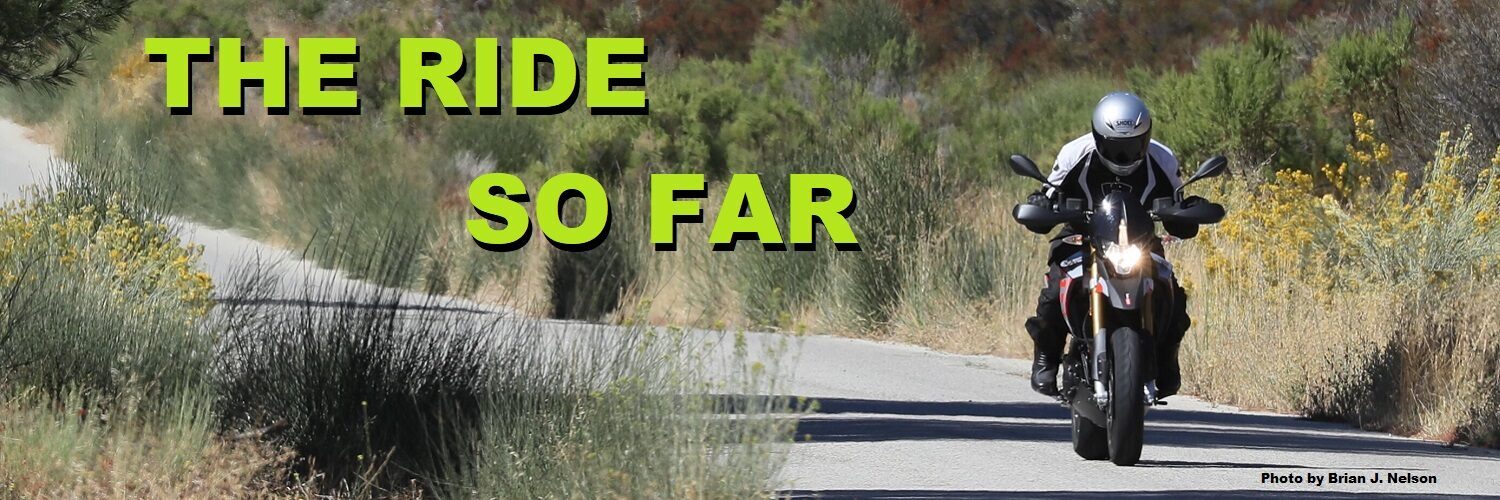It’s hard to say which is the sadder piece of news: Ben Spies retiring from racing or Michael Jordan giving up on the AMA Superbike series. But both speak to the same reality. As Colin Edwards told Superbikeplanet.com, in response to the news that Spies was retiring, “There’s no money in this sport anymore.”
The withdrawal of the Michael Jordan Motorsports team from the AMA Superbike series is a simple matter of numbers. Having lost National Guard sponsorship, and facing the near impossible task of replacing it with similar dollars at a time when race attendance is weak and television coverage is spotty, the team decided to retrench and explore options for racing internationally in 2015. Ben Spies retired from racing mainly because of his shattered shoulders, those complex joints that are so vulnerable and have been the end of many racing careers. But having been to the top of the mountain, he probably wasn’t enthused about his future prospects, and that had to weigh in his decision, too. Of the billions of people on earth, there are four who have reason to be truly satisfied with the professional motorcycle roadracing rides they have: the factory riders for the Honda and Yamaha MotoGP teams. Everyone else wishes for something better, especially at the national AMA level, where many riders don’t even get paid.
Ben Spies earned his spot at the top of the motorcycle roadracing world. Supremely fit and mentally tough, he stared down the winningest rider in AMA Superbike history, Mat Mladin, who was older, more experienced and not hesitant to play head games, to win three AMA Superbike titles. Then he surprised the world by winning the World Superbike championship as a rookie, riding on tracks new to him. His MotoGP start was slowed because of a rule that, in hindsight, was applied only to him and forced him to start on a satellite team instead of the Yamaha factory team, but in two years he still got his first win at Assen and six podium finishes. Then came 2012.
Consider the year Ben Spies had in 2012, in which the universe seemed intent to inflict more bad luck on him in one season than some riders face in a career: broken subframe (Qatar), faulty visor in the rain leaves him blinded (LeMans), a crash while trying to pass for the lead (Catalunya), blistered tire (Silverstone), chunked tire (Assen), food poisoning (Mugello), swingarm failure (Laguna Seca), catastrophic engine failure while contesting for the lead (Indianapolis), clutch problems (Brno), brake problems (Motegi) and, finally, the brutal high-side crash in the rain at Sepang that destroyed his shoulder.
Meanwhile, back home in the AMA series Spies once dominated, things are bleak. Race attendance is down and television coverage has been shoved further into the distant corners of cable. If there are still fans out there who ardently follow AMA Superbike, consider the disappointing scenario they faced this year: The final race, where the championship was to be decided between teammates Josh Hayes and Josh Herrin, was not televised. What should have been the series’ biggest moment, running at Laguna Seca alongside World Superbike and crowning a champion, was instead an invisible moment to most people.
Herrin has wisely left for a Moto2 ride, while he has the opportunity, instead of sticking around to defend his title. The Jordan team now hopes to follow him. Because while the roadracing future at the world level appears a bit shaky, at the national level in the United States it looks dismal. Daytona Motorsports Group was supposed to bring so much new success to the series, but nobody bows toward the supposedly brilliant NASCAR minds down in Daytona Beach much anymore.
At least Dorna, which runs MotoGP and World Superbike, has a plan. Lots of motorcycles are being sold in Asia, where there is room to diversify the series. Instead of having three MotoGP rounds in the United States, where motorcycle racing is an insignificant blip among other sports and entertainment options, and four rounds in Spain, where enthusiasm is high but the unemployment rate among the under-25 population is a record 56.5 percent as I write this, the shift is beginning toward Asia. It’s a reason to hope.
By comparison, AMA Superbike doesn’t have a plan and, in a way, I can’t fault them. I can’t imagine how anyone is going to turn around the downward trajectory of the series in the near future.
The hyper-cheerleader faction of our national superbike racing community lives by the philosophy that you should never say anything bad about the series, even if it’s true, because it further weakens the sport. I can’t quite swallow that Kool-Aid. As a fan, I suppose on some level I was glad the National Guard stepped up to sponsor the series and the Jordan team. As a taxpayer and a citizen, I thought it was a bad deal. I don’t see how the National Guard could possibly have gotten its money’s worth, and the Guard has apparently decided the same. While I want to see racing thrive, and that takes sponsorship, I don’t like to see that money come from the public sector, any more than I want to see the government paying for fancy new football stadiums while the owners of NFL teams grow richer.
I hope Spies finds success and satisfaction as a bicycle racer, restaurant owner or whatever he chooses to focus on. (At least he won’t have the frustration of having to ride a Ducati MotoGP bike.) I hope the Jordan team goes on to international success, to make us proud. I hope someone finds a way to make AMA Superbike racing more than a glorified club race among mostly unpaid riders.
Because when it comes to roadracing, we could certainly use some good news.
